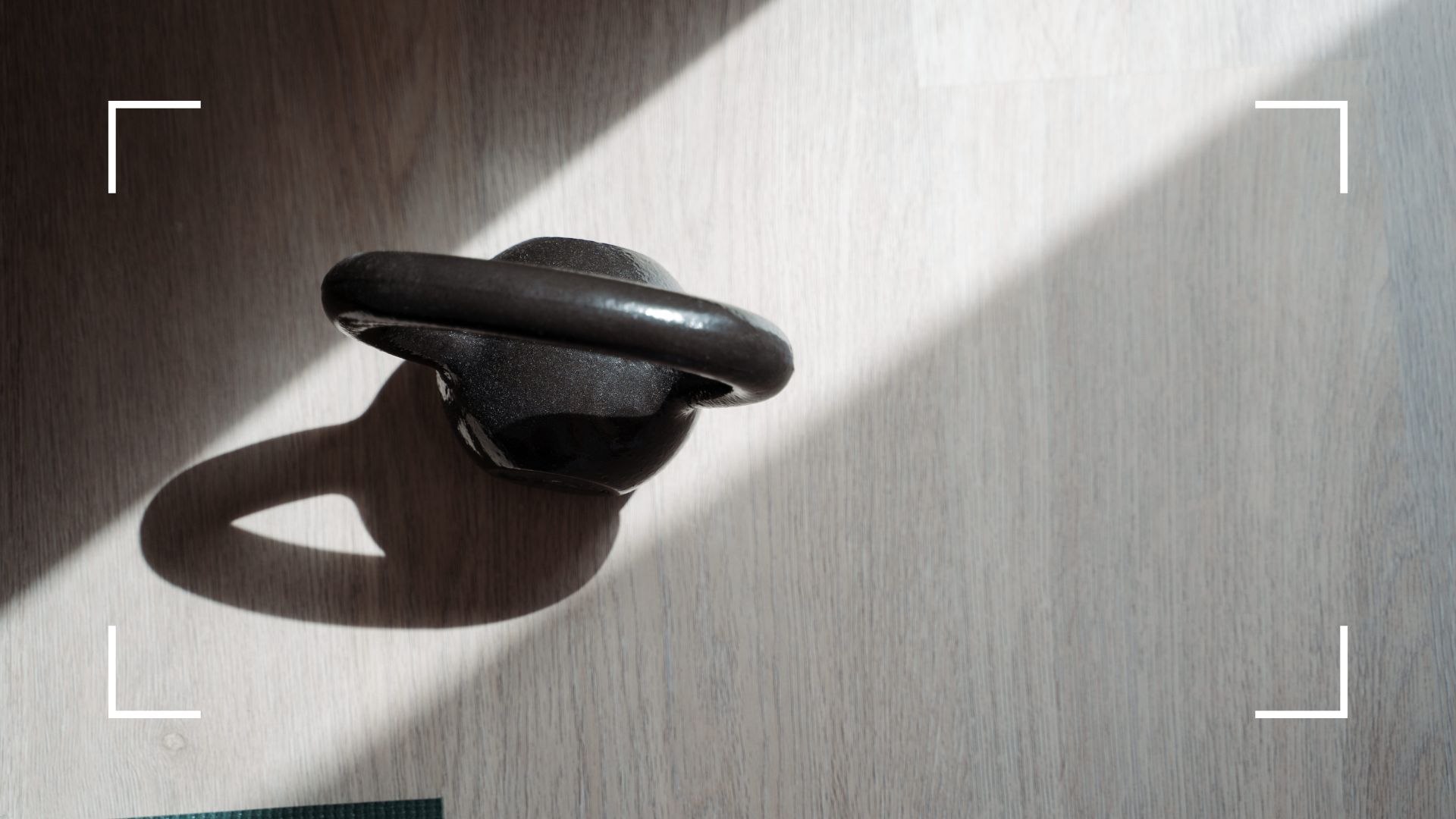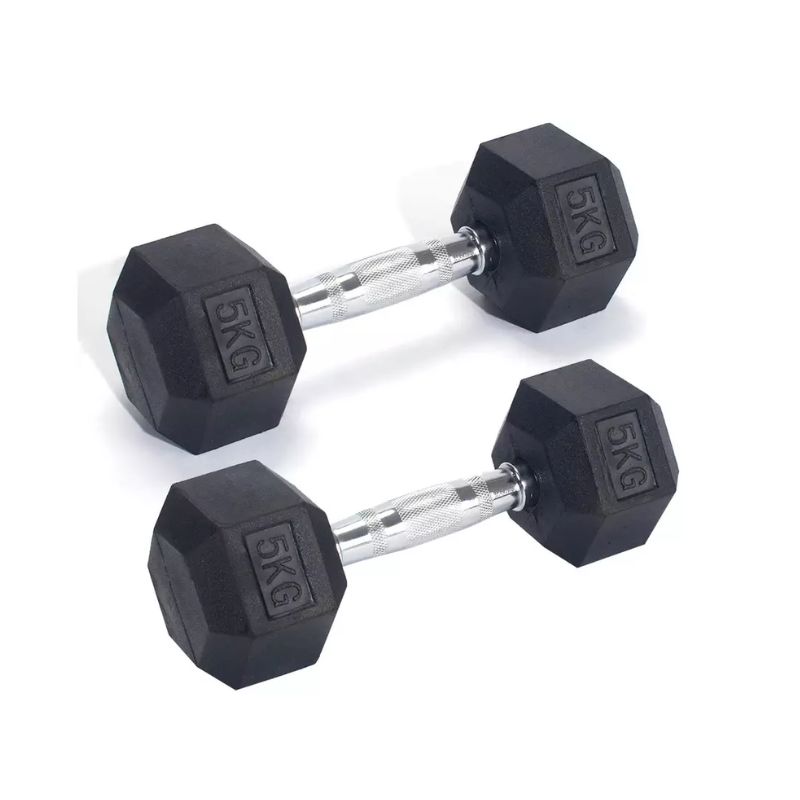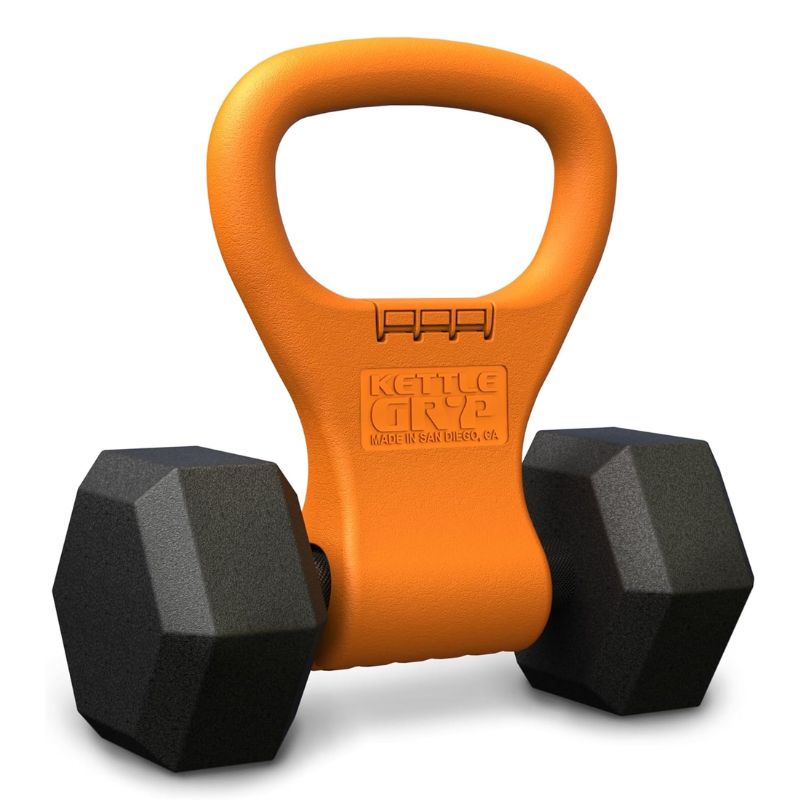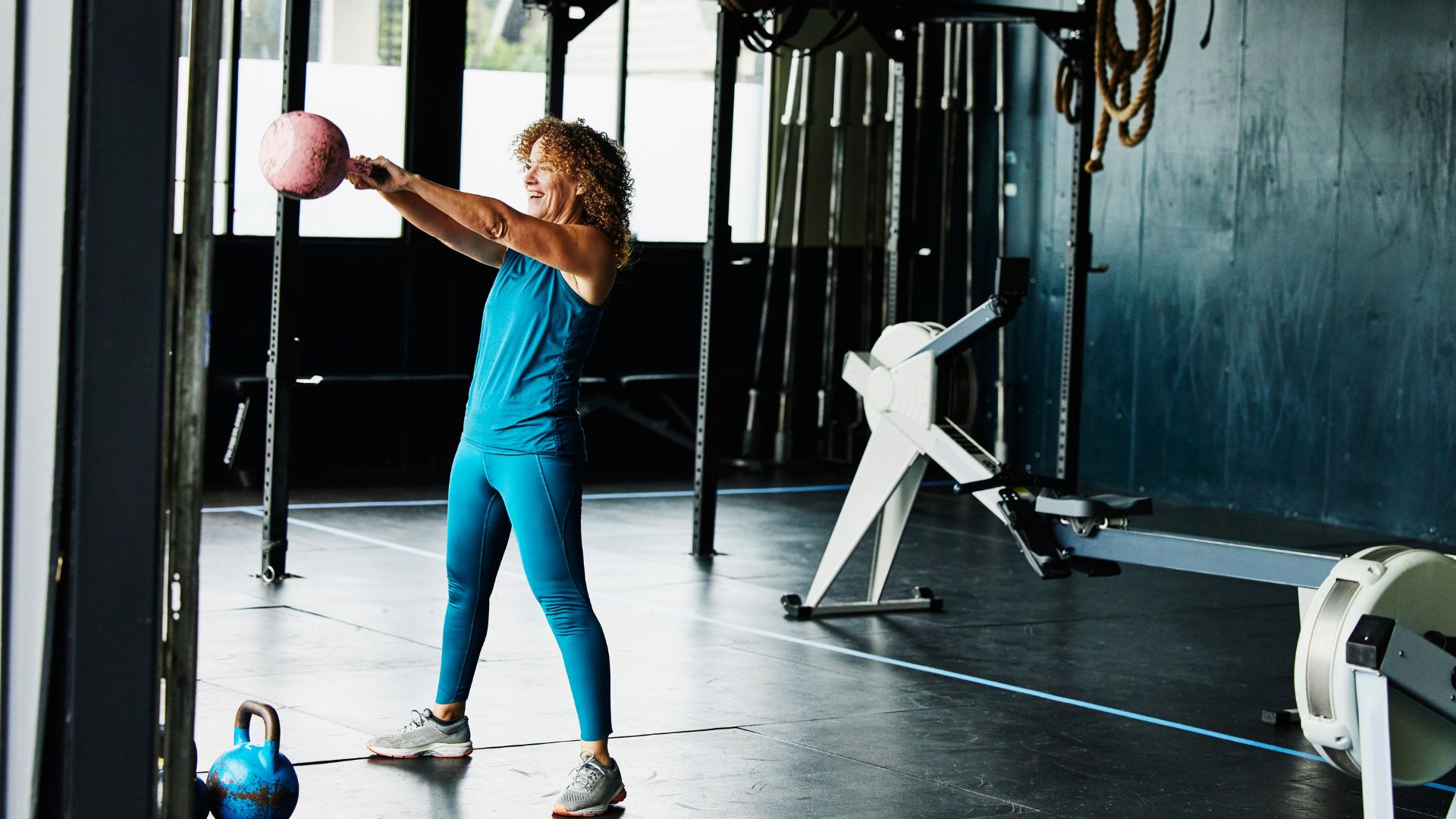
When it comes to strength training, the debate between dumbbells vs kettlebells is a common one. Both have their benefits, being easy to handle, easy to store, and versatile for whatever workout you've got planned. But is one better than the other?
A pair of the best dumbbells can take you a long way, whether that's in the gym or a dumbbell workout for beginners at home. They range in weight and style, so you'll always be able to find a pair to suit your workout and your space. Kettlebells are cast-iron or steel balls, normally wrapped in some kind of rubber for the floor's sake, with a wide handle on top. Being naturally larger, they aren't so good for space-saving but can be especially useful during full-body workouts.
While many people see these weights as interchangeable, there are some key differences between the two. Dumbbells vs kettlebells, which is better? Here's how two personal trainer and strength training specialists decide between the two and when exactly you should use one over the other.
Dumbbells vs kettlebells: What's the difference?
The main difference between dumbbells vs kettlebells is the weight distribution, the trainers agree. "As dumbbells typically have weight on either side and the handle in the middle and kettlebells are circular [with the weight at the bottom] and handle at the top, the weight distribution is different," says Milly Isaac, a certified personal trainer and head trainer at F45 Oxford Circus.
"Weight distribution can add up to a totally different set of demands for the body," says Lotti Sorrell, a certified personal trainer and the founder of Longevity. "Which one you choose will depend on your goals and training focus, as well as any injury or movement restrictions." Before doing your next strength training workout at home or at the gym, consider the difference this weight distribution makes:
Dumbbells are better for targeting specific muscles
Both dumbbells and kettlebells will help you build and maintain muscle but dumbbells make it just fractionally easier. Not only is the weight easier to hold, with a handle central between the weights, but dumbbells also tend to come in more of a range of incremental sizes than kettlebells, so you can work your way up slowly.
"If your training is geared towards growing muscle, also known as hypertrophy, and you're less interested in functional training considerations, a dumbbell might be a better choice for you. It will be easier to perform movements at a higher weight to achieve progressive overload," says Sorrell.
It also tends to be easier to add dumbbells vs kettlebells to a bodyweight workout you're already comfortable doing. For example, picking up a pair of dumbbells as you do the many different types of squats is a simple way to make the exercises harder. The same can be said for a chair workout where you want to add a little resistance.

These Pro Fitness 5kg dumbbells come as a pair for £30, making them a reasonably-priced addition to any home workout setup.The hexagonal shape stops them from rolling away and the contoured ergonomic handles are great for maintaining a strong hold over the weight during your movement.
Decathlon is one of the best places to buy strength training essentials and this cast iron kettlebell is a top pick of the bunch. Complete with a rubber bottom to prevent the metal from marking your floor, the weight comes in sizes from 8kg to an impressive 24kg.

Turn any dumbbell into a kettlebell with this unique tool. Designed to latch over the handle of your dumbbell (up to 25kg), the KettleGryp is a space and money-saving tool to help you get the most from your workouts. You'll already need to own at least one dumbbell to use this grip though as the weight isn't included.
Kettlebells are better for building functional strength
If you're working out to make your life easier as the years go by, then picking up a kettlebell may be the better option for you. "These weights are fantastic for building functional strength as the weight is off-centred. This forces the supporting structures in the body to work harder than they would with a dumbbell of the same weight as the weight is centred."
Specifically, kettlebell swings or longer kettlebell flows (where several movements are chained together) are great for creating a challenging range of motion, fluidity, and speed all at once, says Sorrell.
Other movements recruit the supporting muscles that don't always get the work they deserve with kettlebells, she adds. "For instance, unilateral overhead marches with the kettlebell will challenge your core, hips, wrists and shoulders and help keep everything stable." They are also one of the best core exercises to do at home.
Dumbbells are easier to store
If you do strength training or yoga mat workouts with dumbbells, you'll need to think about storage for your equipment. Where are you going to keep your weights when you're not using them? For most people deciding between dumbbells vs kettlebells with this in mind, dumbbells will be most suitable.
You can slide them under the sofa or the bed, stack them together in a box or drawer, or line them up on their heads against a wall. Kettlebells, on the other hand, require more storage space as they tend to be larger overall and only sit comfortably upright.
Also, you can buy adjustable dumbbells for less than £25 that come with alternating plates so you only have one pair of dumbbells to house but weights ranging from one or two kilograms right up to 10 or 12kg in each hand.
Kettlebells can help improve your grip strength
A kettlebell can challenge some of the supportive structures in the body that a dumbbell can't - and grip strength is one of them. "Grip strength is great for longevity, which is all about keeping us moving well as we age," says Sorrell.
As the weight on a kettlebell hangs in the centre, the muscles around the wrists and forearms need to work harder to maintain control of the weight. It's a good sign of muscle strength if you can lift and comfortably move a kettlebell as you age and the key to warding off many functional age-related issues, per research by Dakota State University.

Dumbbells are better for beginners
Looking to learn how to start weightlifting? Chances are, dumbbells vs kettlebells will be a better pick if you're completely new to resistance training. "It can be a great idea to start off with dumbbells as you can really focus on form before adding in the instability that kettlebell training brings," says Sorrell.
Isaac agrees. "It can take a bit of time to get used to the weight distribution, so dumbbells are a great starting point," she says.
Are kettlebells better than dumbbells?
The research on dumbbells vs kettlebells is sparse at best. However, when it comes to functional strength training, which is strength training to help daily movement, kettlebells are said to be more effective. Our trainers' experience and a study by The Józef Piłsudski University of Physical Education in Warsaw tells us that kettlebells are better than dumbbells at recruiting muscles and using them to complete a movement.
In the study by The Józef Piłsudski University of Physical Education in Warsaw, researchers looked at participants doing an overhead press with dumbbells vs kettlebells and found that muscle activity was higher across most of the back and shoulder muscles with the kettlebell.
Does it matter which one I use?
When to use kettlebells
- When you are doing compound movements - such as deadlifts and squats.
- For weighted core work and balance sessions.
- To improve your grip strength.
- For workouts with a strong cardio element as they recruit more muscle groups.
- For when using a dumbbell is uncomfortable.
"Kettlebells vs dumbbells are preferable when doing back-to-back exercises, which are typically power or compound movements," says Isaac. "It’s much easier to go, for example, from a kettlebell clean into a kettlebell squat and straight into a kettlebell clean and press. Dumbbells are slightly less manageable. If you’re focusing on conditioning and getting your heart rate up a little bit higher, including kettlebells in your workout is a great idea."
When to use dumbbells
- For isolating key muscles during exercise - doing bicep curls, for example.
- For adding quick resistance to your current bodyweight workout.
- If you're new to strength training and just getting used to the movements.
- If you're lacking the storage space needed for kettlebells.
- If kettlebells are uncomfortable to hold.
"With dumbbells vs kettlebells, you have much more of a variety with loads of different movements. You can use them for pretty much anything and it’s great for isolating key muscles and joints," says Isaac. "If you find certain movements hard, you should use a dumbbell over the kettlebell. Kettlebells will more likely be used for compound or power movements and with the weight distribution being less reliable, you will typically go for dumbbells to make it a little bit easier."
While kettlebells might - controversially - work out better for many people looking to do a full-body strength training workout, it's worth experimenting with lots of different pieces of equipment. For example, along with kettlebells and dumbbells, you can use one of the best resistance bands for strength training, a barbell, weighted plates, or just your body weight. "As always, don’t try and make yourself work for the move, make the move work for you," says Sorrell. "Adaption is key and it’s great to have the option of both kettlebells and dumbbells in your toolkit so that you can mix it up and challenge yourself."







